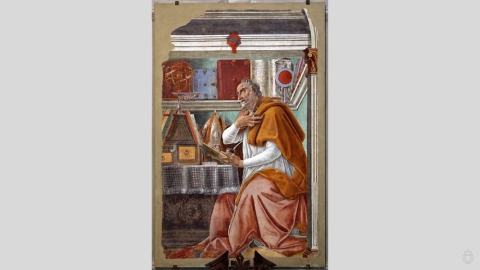France: Contradictions in End of Life Care

The French National Assembly building
While the 71 members of the special commission of the French National Assembly recently removed, one after another, the rare obstacles that still existed in the first version of the government text on the end of life, FSSPX.News offers a summary of the bill’s many internal contradictions.
The simple reminder of God’s commandment, “Thou shalt not kill,” is enough to disqualify, from a moral and ethical point of view, the drift toward euthanasia included in the bill on the end of life. But highlighting its internal contradictions allows us to see the ineptitude of a project which cannot even withstand simple ad hominem arguments.
1st contradiction: The government text, with the additions of the special parliamentary commission, breaks with the tradition of following the guidelines of the French National Advisory Ethics Council for Health and Life Sciences (CCNE). This body, though known for its progressivism, recommends, in the context of end of life, the generalization of palliative care before any legislative change. The government is proposing the opposite.
2nd contradiction: While the very notion of law requires that we call acts what they are in reality, and what they represent, the act of assisting suicide and euthanasia are hidden behind “aid in dying,” under the pretext that it is “simple and humane,” and they are described as care. But the lethal act breaks the support and destroys the very notion of care.
3rd contradiction: The French assisted living facilities (EHPAD) want a more systematic establishment of palliative care units; but the bill de facto shoehorns euthanasia into the EHPAD facilities, according to the admission of the Minister of Health, Catherine Vautrin, on the second day of the debates.
4th contradiction: the bill is based on eminently subjective criteria, such as “unbearable suffering” and “serious impairment of judgment,” while “suffering resistant to treatment” is able to medically evaluated. How can these subjective elements be judged objectively? As for the fatal outcome “in the medium term,” it leaves all doctors perplexed...
5th contradiction: the bill is intended to promote “the autonomy of the vulnerable patient” through a condition that is life-threatening in the short or medium term; but the price of this “autonomy” to die destroys the freedom of the healthcare personnel, ordered to perform the lethal action. Are there freedoms that are worth more than others?
Finally, according to Gènéthique, “all the obstacles” were overcome: “the life-threatening condition, euthanasia by a loved one accepted, euthanasia considered as care, volunteering refused.” Patrick Hetzel, a delegate who fought these results, cannot contain his emotion: “The disarray and the concern of caregivers are immense, this text is the most permissive in the world.”
In her masterful essay, The Human Condition, Hannah Arendt makes a remark that sheds light on the debate around the end-of-life bill: “What first undermines and then kills political communities is loss of power and final impotence [...] Power is actualized only where word and deed have not parted company, where words are not empty and deeds not brutal, where words are not used to veil intentions but to disclose realities, and deeds are not used to violate and destroy but to establish relations and create new realities.” That is when, she argues, violence and tyranny replace public peace.
Related Article:
(Sources : Gènéthique – FSSPX.Actualités)
Illustration : Photo 58743784 © Tomas1111 | Dreamstime.com





